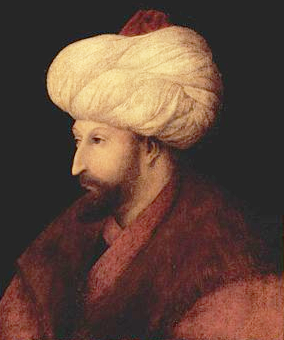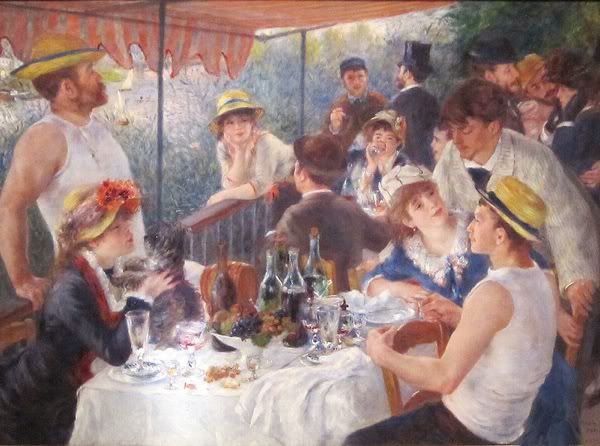(p.121) Apparently the arrival of French soldiers marching through on a training exercise can throw the household, or at least the household's servants, into a tizzy. I find it interesting that their movement through the streets is compared to that of a swollen river, as though there is no stopping them, no slowing them, and as though there is no thought, no planning, in their movement.
Bloch is the friend who introduces MP to the (fictional) author Bergotte. He is a bit of a nihilist, having no interest in the quantifiable world and insisting that poetic lines would be "finer if they meant absolutely nothing". He is Jewish, like Swann (and Ephrussi), something of political note in that day thanks to the Dreyfus affair. Bloch is banned from the family home for telling MP that his great-aunt was a kept woman, but not before tells him "(a piece of news which had a great influence on [his] later life, making it happier at one time and then more unhappy) that no woman ever thought of anything but love, and that there was not one of them whose resistance could not be overcome." (p.129) Foreshadow much? Also notable, the "kept" great-aunt was previously mentioned as being bound to duty and convention, and MP insinuates later that Bloch's impression of her was incorrect ("but in the matter of Bergotte he had spoken truly" implying previous falsehood [p,129])
Bergotte is a fictional character, an author. Since names of several real writers are also used I can only imagine that this creation will have some meaning throughout our tale (and perhaps the same goes with the earlier relation of actors). MP is obsessed with Bergotte. He mentions Bergotte's writing about nature, architecture (cathedrals), and literature, holds his opinions as godly, and refers to his writings as "mirrors of truth" (p.133).
"I had no doubt that [his opinion] would differ entirely from my own, since his came down from an unknown sphere toward which I was striving to raise myself [and] if I happened to find in one of his books something which had already occurred to my own mind, my heart would swell as though some deity had, in his infinite bounty, restored it to me, had pronounced it to be beautiful and right." (p.132)Swann compares Bloch to a "Bellini portrait of Mahomet II" (p.134) (because Swann compares life to art a lot) and tells MP that he knows Bergotte well, that Bergotte's favorite actress is Berma (the one fictional writer loves the one fictional actor mentioned in the book).
More on Swann. He also likes Berma, and Bergotte. MP refers again to Swann's reluctance to express an opinion. I'm seeing this as a major character trait. He qualifies things only through their relation to art pieces. Does this remove him from feeling them? Is it similar to the grandmother's desire to have many layers of art between herself and a physical thing? MP does also imply that his mother and grandmother commit the same error.
Swann's wife is said by some to be having an affair with M. de Charlus. The daughter becomes an object of adoration for MP because she is friendly with Bergotte. Because of this, Swann's daughter becomes the woman in MP's dreams, standing on Cathedral steps, sharing with him his love for architecture and Bergotte.
Passages to remember:
"'Are there any books in which Bergotte has written about Berma?' I asked M. Swann.
'I think he has, in that little essay on Racine, but it must be out of print. Still, perhaps there has been a second impression. I'll find out. In fact I can ask Bergotte himself all you want to know next time he comes to dine with us. He never misses a week, from one year's end to another. He's my daughter's greatest friend. They go and look at old towns and cathedrals and castles together.'" (p.137)
Cool stuff:
(p.122) 1870 was the Franco-Prussian War which ended the second empire and led to the third republic.
(p.124) Bergotte is a fictional author, while Alfred de Musset was a real 19th century French author, and Jean Racine was a French playwright from the 17th century. Racine wrote both Athalie and Phédre (p.131)
(p.125) "cher maître" means "dear master".
(p.134) Bellini's portrait of Mahomet II:


